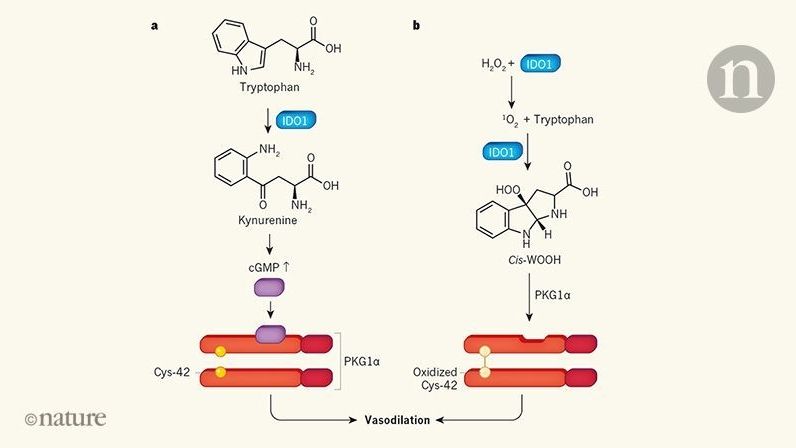In the life-threatening condition known as sepsis, the body responds to infection by inducing widespread biochemical changes that make the situation worse, some of which can lead to a severe decline in blood pressure. Several molecular factors that alter the constriction of blood vessels are involved in this decline, including nitric oxide, prostaglandins and oxidants such as hydrogen peroxide. In 2010, kynurenine — a metabolic product of the amino acid tryptophan — was identified as another factor that causes blood vessels to widen during sepsis. Writing in Nature, Stanley et al. (who work in the same laboratory as the researchers who identified kynurenine) now say that they got the wrong culprit.
Nine years ago, the compound kynurenine was reported to be responsible for the dilation of blood vessels during a potentially fatal inflammatory condition. New evidence has now identified the true culprit. A re-evaluation of a factor involved in vasodilation.
